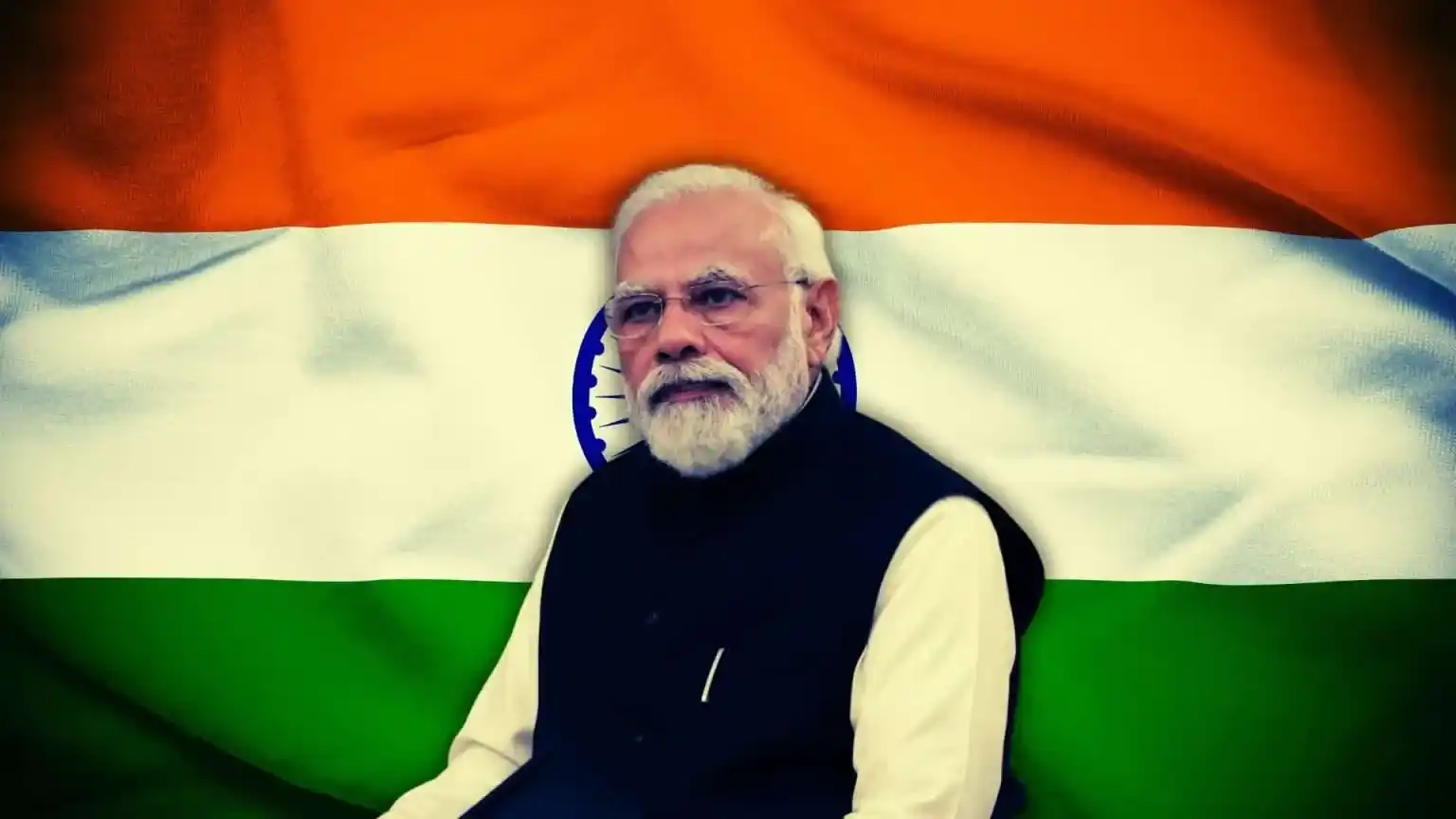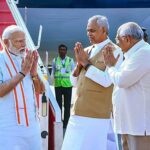The Bhartiya Janata Party (BJP), which is led by Prime Minister Narendra Modi, appears to be poised for a significant year in 2024. It is anticipated that the BJP would achieve triumph in the national elections, following recent victories in state elections that were won by a broad margin.
Increased gross domestic product growth, considerable infrastructure advances, and multinational explorations of the moon captured the interest of the international community in the year 2023. Domestically, Modi’s ambition to make cultural changes, such as changing India’s official name to Bharat, may result in the transformation of the nation into a religious state that is governed by the BJP’s interpretation of Hinduism.
For Indian Prime Minister Narendra Modi, his Bhartiya Janata Party (BJP), and its mentors in the Rashtriya Swayamsevak Sangh (RSS), the Hindu supremacist civil society organization, the year 2024 has the potential to be a year that will forever change the course of international history.

As the year 2023 came to a close, they had a lot of reasons to be happy. Careful preparations had been made for the national elections that were scheduled to take place in May of 2024. After landslides occurred in three Hindi-speaking states in the north, the Bhartiya Janata Party (BJP) gained a surge of confidence at the beginning of December.
What came as a surprise was the magnitude of the victory. It was believed that the Indian National Congress had a possibility of being re-elected because it had previously held power in both the state of Rajasthan and the state of Chhattisgarh.
Congress had formed a government in Madhya Pradesh, a diverse state located in the middle of India, in 2018, but it was only in power for a brief period of time until a number of its members defected to the Bhartiya Janata Party (BJP). This time, it had put its hopes on coming out on top. Instead, the BJP government that was in power at the time was re-elected with a majority of seventy percent of the seats and forty-nine percent of the votes.
It is not always the case that successes at the state level transfer into victory at the national level. However, the factor that is shared by the BJP’s campaigns in the states will be even more prominent in the national elections that will take place in May. Mr.
Narendra Modi is the component in question. He campaigned tirelessly over a period of six weeks, traveling to small towns in each of the three states in order to captivate the voters in those areas and invigorate the BJP organizers and workers.
The upcoming elections in India in 2024 could usher in a new political era.
Aside from the state elections, the stage has already been meticulously prepared for the year 2024. When India’s gross domestic product (GDP) growth in 2023 reached close to eight percent, the entire world sat up and took notice. Infrastructure that was large and prominent was constructed, including highways, airports, and a massive new parliament that completely transformed the central area of New Delhi.
When it comes to memorandums of understanding, the government asserts that more than forty billion dollars worth of investments were committed in the year 2024. 330 million tonnes of foodgrain were produced, which is an all-time high for the industry.
India was the host nation for the G20 summit, which took place in New Delhi in September 2023. The country produced a common statement far more quickly than was anticipated. During the meeting, India successfully landed a probe on the moon, joining the ranks of moon explorers that already included the United States of America, Russia, and China.
When the government of Canada made the accusation that India was involved in the assassination of Canadian Sikh Hardeep Singh Nijjar, who was linked with the Sikh separatist movement, the accusation had minimal impact on the political landscape of its Indian counterpart. As a result, it was enthusiastically received by certain followers of the Bhartiya Janata Party (BJP), who interpreted it as a sign that India had reached the big time with the United States and Russia.
The United States of America made the announcement a few weeks later that it was investigating an Indian national for a plot to kill a Sikh in the United States. The authorities in the United States moved cautiously because they did not want to interfere with the growth of the Quad, which is an organization consisting of the United States, Japan, Australia, and India that aims to present a unified front against the aggressive presence of China in the Indo-Pacific region.
Against this background, the Prime Minister and his party are working tirelessly to generate momentum for the national elections that will take place over the course of several weeks in April and May of 2024. Modi would be able to modify the constitution during the third five-year term of the BJP’s presidency if the party were to secure a resounding majority in the legislature.
In order to be considered a major amendment, it must first receive approval from two-thirds of the legislators who are present in each house of parliament, and then, in some cases, it must also receive endorsement from some of the 28 state legislatures.
Renaming India after its Sanskrit name, Bharat, mandating simultaneous elections for both parliament and state legislatures, and nationalizing a ban on cow slaughter that is currently in force in some states are all examples of constitutional reforms that the Bhartiya Janata Party (BJP) and its predecessors have advocated in the past.
Modi has been a member of the Rashtriya Swayamsevak Sangh (RSS) since he was a small child. The RSS is a Hindu-supremacist organization that has its origins in some of India’s fascist activities that occurred in the 1920s.
It is the social and cultural goals of the RSS to establish a state in which the strong central rule of a Hindu supremacist party and its leader will bring about the return of a golden Hindu civilization. This state would be created in order to achieve the RSS’s goals.
It is highly improbable that a government led by the Bhartiya Janata Party (BJP) will attempt to transform India into a presidential system in order to achieve this objective; nonetheless, it will endeavor to make the states completely reliant on the directives issued by the central government.
It is quite improbable that a third term for the BJP will bring about significant economic change. Agricultural constructions are notoriously tough to modify when it comes to electricity. In spite of the fact that the nation has a nutritional need for fruit and vegetables, which could be more profitable but would need more efficient supply chains, farmers prefer the certainty of minimum support prices for foodgrains that they have grown.
A lack of manufacturing, which is defined as the production of goods that are in demand all over the world, and the jobs that are associated with it is the most significant gap that economists identify in India. In some states, the level of schooling is low, and a sizeable percentage of young people who are underemployed do not possess fundamental skills.
At the opposite end of the economic spectrum, India’s large firms are generally satisfied with the fact that a complex web of permits, labor rules, and uncertain tax changes discourage international entrepreneurs from entering the country.
One of the most major aspects on the agenda for the third term of the BJP would be cultural issues. The BJP and RSS will infuse India with their interpretation of what it means to be a Hindu, and India will transform into a religious state.
Both Muslims and Christians, as well as “anti-nationals,” which is a catch-all word for people who respect a plural state in which a person’s religion is irrelevant and citizens are not expected to be cheerleaders for their government, will have a difficult time in the future.
La Trobe University and the Australian National University both have Professor Robin Jeffrey on their faculties as an Emeritus Professor. There is also the Institute of South Asian Studies in Singapore, where he holds the position of honorary fellow.










